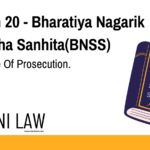Section 439 CrPC: High Court & Sessions Court Bail Powers – Explained
1. The Code
Section 439 of the Code of Criminal Procedure, 1973 (CrPC) deals with the powers of the High Court and Sessions Court to grant bail in cases where a person has been arrested or detained. This section outlines the conditions and circumstances under which bail can be granted by these courts.
2. Explanation
Section 439 CrPC empowers the High Court and Sessions Court to grant bail in the following situations:
- When a person has been arrested or detained by an order of any Magistrate or Court
- When a person has been arrested or detained without a warrant
- When a person has been arrested or detained under any other law for an offense triable by a Court of Session
The High Court and Sessions Court have the power to grant bail either:
- On the application of the person arrested or detained
- On its own motion
The court may impose conditions on the grant of bail, such as:
- Furnishing surety
- Residing at a specified place
- Reporting to the police station
The court must also consider the following factors while deciding on bail:
- The nature and gravity of the offense
- The possibility of the accused absconding
- The possibility of the accused influencing witnesses
- The possibility of the accused tampering with evidence
- The overall circumstances of the case
3. Illustration
Suppose a person is arrested by the police for a serious offense like murder. He is produced before a Magistrate, who denies him bail. The accused can then approach the Sessions Court or the High Court to seek bail under Section 439 CrPC. The court will examine the case, consider the factors mentioned above, and decide whether to grant bail or not. If granted, the court may impose conditions like furnishing a surety, reporting to the police station regularly, etc.
4. Common Questions and Answers
Q. Who can apply for bail under Section 439 CrPC?
A: Any person who has been arrested or detained can apply for bail under this section.
Q. Can the High Court grant bail in all cases?
A: No, the High Court’s power to grant bail is discretionary. It can grant bail only if it is satisfied that the accused is not likely to abscond, tamper with evidence, or influence witnesses.
Q. What are the conditions that can be imposed on bail?
A: The court can impose conditions like furnishing surety, reporting to the police station, residing at a specific place, etc.
Q. Can the bail be cancelled?
A: Yes, the bail can be cancelled if the accused violates the conditions imposed by the court or if there is a change in the circumstances of the case.






